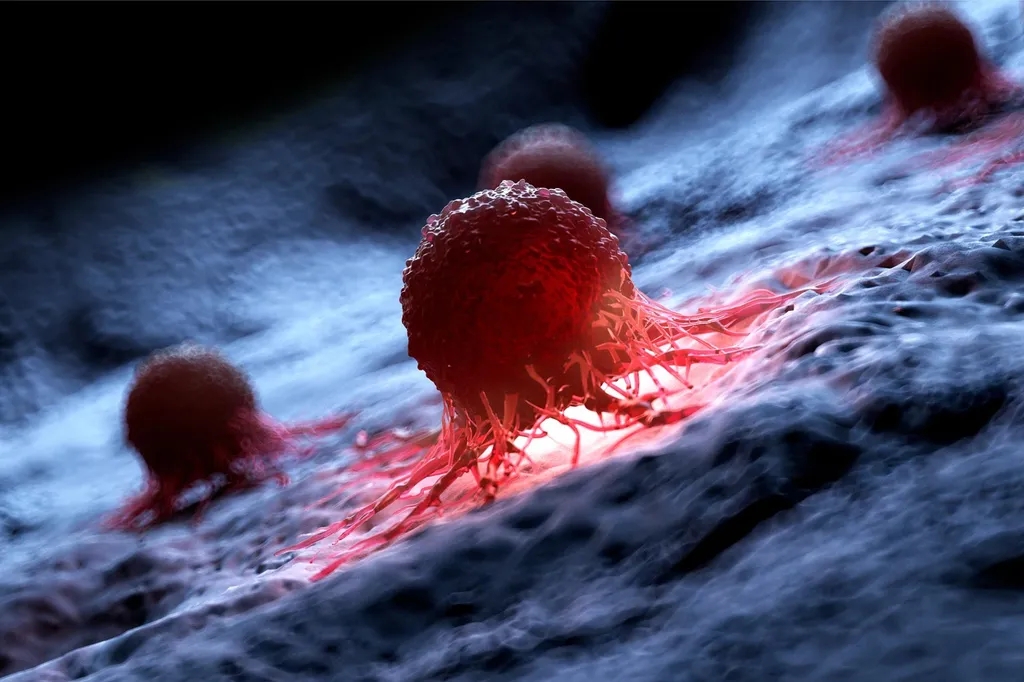博文
一种常见的药物可“开启”致癌基因?
 精选
精选
||
一种常见的药物可“开启”致癌基因?
诸平
据新加坡国立大学(National University Of Singapore简称NUS)2022年7月12日提供的消息,NUS的研究人员与美国哈佛医学院(Harvard Medical School简称HMS)以及美国波士顿布莱根妇女医院(Brigham And Women's Hospital)的研究人员合作发现,一种用于治疗白血病(Leukemia)的常见药物——低甲基化剂(Hypomethylating agents简称HMA),可以“开启”导致癌症的基因(Harvard Doctors Discover That a Common Drug Can “Turn On” Gene That Causes Cancer)
研究人员发现,一种常用于治疗骨髓增生异常综合症的药物低甲基化剂(HMA)可以“开启”导致癌症的基因。
科学家提出了一种早期干预策略,以提高治疗效果(Scientists propose a strategy for early intervention to enhance treatment outcomes)
低甲基化药物(HMA)目前被用作骨髓增生异常综合症(myelodysplastic syndrome 简称MDS)患者的一线治疗,MDS是一组骨髓中健康成熟血细胞生成不足的疾病。然而,HMA工作的确切机制仍然未知。尽管这一点尚未完全得到证实,但一个可能的担忧是它们可能会激活睡眠中的癌基因(activate a sleeping oncogene)。
在2022年5月26日发表于《新英格兰医学杂志》(New England Journal of Medicine)网站的一项研究——Yao-Chung Liu, Junsu Kwon, Emiliano Fabiani, Zhijian Xiao, Yanjing V. Liu, Matilde Y. Follo, Jinqin Liu, Huijun Huang, Chong Gao, Jun Liu, Giulia Falconi, Lia Valentini, Carmelo Gurnari, Carlo Finelli, Lucio Cocco, Jin-Hwang Liu, Adrianna I. Jones, Junyu Yang, Henry Yang, Julie A.I. Thoms, Ashwin Unnikrishnan, John E. Pimanda, Rongqing Pan, Mahmoud A. Bassal, Maria T. Voso, Daniel G. Tenen, Li Chai. Demethylation and Up-Regulation of an Oncogene after Hypomethylating Therapy. New England Journal of Medicine, 2022, 386: 1998-2010. Published May 26, 2022. DOI: 10.1056/NEJMoa2119771. https://www.nejm.org/doi/10.1056/NEJMoa2119771
参与此项研究的除了来自新加坡国立大学(NUS)癌症科学研究所(CSI Singapore)、美国哈佛医学院(HMS)、以及美国波士顿布莱根妇女医院(Brigham And Women's Hospital)的研究人员之外,还有来自美国波士顿的德纳-法贝尔(Dana-Farber)癌症研究所(Dana–Farber Cancer Institute);意大利罗马托维尔加塔大学(University of Rome Tor Vergata)、罗马圣卡米拉斯国际卫生科学大学(UniCamillus–Saint Camillus International University of Health Sciences, Rome, Italy)、意大利博洛尼亚大学(University of Bologna, Italy);中国医学科学院-北京协和医学院血液学研究所与血液病医院(Institute of Hematology and Blood Diseases Hospital, Chinese Academy of Medical Sciences and Peking Union Medical College, Tianjin, China)、中国台北荣民总医院(Taipei Veterans General Hospital, China)、台北阳明交通大学(Taipei Yang Ming Chiao Tung University);澳大利亚新南威尔士大学(University of New South Wales, Sydney, Australia)以及澳大利亚兰威克的威尔士亲王医院(Prince of Wales Hospital, Randwick, NSW, Australia)的研究人员。多国研究人员的密切合作。研究结果表明,HMA能够并且确实激活癌胚蛋白SALL4(oncofetal protein SALL4)。
开启导致癌基因(Turning on the gene that causes cancer)
SALL4是一个已知的癌基因,SALL4的表达被发现有助于MDS和白血病(leukemia)的发展。2016年,另一个研究小组进行的一项研究表明,肝癌细胞系中SALL4的激活与低甲基化有关,2021年,CSI Singapore的丹尼尔·特南(Daniel Tenen)教授及其团队证明,乙型肝炎病毒通过RNA介导的机制诱导肝癌中的SALL4去甲基化。为了研究在接受低甲基化药物治疗的患者中癌基因的可能上调,丹尼尔·特南教授的团队与其他小组合作,研究HMA利用与SALL4激活之间的关联,以及对生存结果的影响。
研究小组分析了68名MDS患者在HMA治疗前后的骨髓样本。科学家发现HMA治疗可能导致SALL4癌基因的激活,导致患者的生存结果不佳,甚至是那些疾病完全缓解的患者。
“我们在这项开创性研究中的发现表明,使用低甲基化药物治疗可以激活和上调致癌基因(oncogenes),如SALL4。这表明监测接受HMA治疗的患者SALL4表达水平的重要性。虽然SALL4的上调可能会影响疾病的进展,并与较差的诊断相关,但它也可能提供一个机会,让患者通过针对SALL4途径的药物进行早期干预,从而改善治疗和患者预后,”丹尼尔·特南教授说。
早期干预效果更好(Early intervention for better results)
有趣的是,丹尼尔·特南教授的团队与顿布莱根妇女医院(BWH)和哈佛医学院(HMS)团队合作的这些发现,进一步支持了他们在2021年的另一项研究,其中他们证明,通过低甲基化重新激活SALL4的癌细胞可以有效地用一种旨在抑制SALL4下游通路的药物治疗。这些新确立的原则可能有助于改变使用HMA的其他癌症和疾病的治疗模式。
接下来,该团队打算进行更大规模的前瞻性研究,以验证这些发现,并开发低成本但准确的生物标记试剂盒来监测SALL4的表达。通过跨实验室的合作研究,该团队旨在开发更有效、更具体的直接针对SALL4的药物。
本研究得到了意大利癌症学会(Associazione Italiana per la Ricerca sul Cancro简称AIRC)、新加坡卫生部国家医学研究委员会(Singapore Ministry of Health National Medical Research Council)新加坡转化研究者奖(Singapore Translational Research Investigator Award : MOH-STaR18nov-0002, MOH-000278, to Dr. Tenen)、新加坡国立卫生研究院国立癌症研究所(National Cancer Institute, National Institutes of Health),新加坡教育部的卓越研究中心(Singapore Ministry of Education under its Research Centers of Excellence initiative; a grant R35CA197697, to Dr. Tenen)、新加坡国立卫生研究院国立心肺血液研究所(National Heart, Lung, and Blood Institute, National Institutes of Health grant: P01HL131477);秀研究基金会(Xiu Research Fund)、澳大利亚国家卫生和医学研究委员会(National Health and Medical Research Council of Australia grants: APP1024364, APP1043934, APP1102589, and APP1163815); 白血病和淋巴瘤协会的转化项目 (Translational Program Grant:6589-210, from the Leukemia and Lymphoma Society);中国台湾省科技部门资助(grant 109-2314-B-075-078, from the Ministry of Science and Technology, Taiwan, China)、台北阳明交通大学庄贤龙纪念癌症及生物治疗研究中心(Chong Hin Loon Memorial Cancer and Biotherapy Research Center)的资助、中国国家自然科学基金(National Natural Science Funds grant:81870104)、中国医学科学院医学科学创投基金(Chinese Academy of Medical Sciences Initiative Fund for Medical Sciences grant: 2020-I2M-C&T-A-020);意大利大学和国家相关研究项目部( Italian Ministry of University and Research–Projects of National Relevance grant: 2017RKWNJT)等资助。
上述介绍,仅供参考。欲了解更多信息,敬请注意浏览原文或者相关报道。
https://www.nejm.org/doi/10.1056/NEJMoa2119771
BACKGROUND Although hypomethylating agents are currently used to treat patients with cancer, whether they can also reactivate and up-regulate oncogenes is not well elucidated.
METHODS We examined the effect of hypomethylating agents on SALL4, a known oncogene that plays an important role in myelodysplastic syndrome and other cancers. Paired bone marrow samples that were obtained from two cohorts of patients with myelodysplastic syndrome before and after treatment with a hypomethylating agent were used to explore the relationships among changes in SALL4 expression, treatment response, and clinical outcome. Leukemic cell lines with low or undetectable SALL4 expression were used to study the relationship between SALL4 methylation and expression. A locus-specific demethylation technology, CRISPR–DNMT1-interacting RNA (CRISPR-DiR), was used to identify the CpG island that is critical for SALL4 expression.
RESULTS SALL4 up-regulation after treatment with hypomethylating agents was observed in 10 of 25 patients (40%) in cohort 1 and in 13 of 43 patients (30%) in cohort 2 and was associated with a worse outcome. Using CRISPR-DiR, we discovered that demethylation of a CpG island within the 5′ untranslated region was critical for SALL4 expression. In cell lines and patients, we confirmed that treatment with a hypomethylating agent led to demethylation of the same CpG region and up-regulation of SALL4 expression.
CONCLUSIONS By combining analysis of patient samples with CRISPR-DiR technology, we found that demethylation and up-regulation of an oncogene after treatment with a hypomethylating agent can indeed occur and should be further studied. (Funded by Associazione Italiana per la Ricerca sul Cancro and others.)
https://m.sciencenet.cn/blog-212210-1347123.html
上一篇:化学家让-马利·塔拉斯孔荣获2022 CNRS 金奖
下一篇:蛋白质中的糖代码:为生物制药的发展铺平道路
